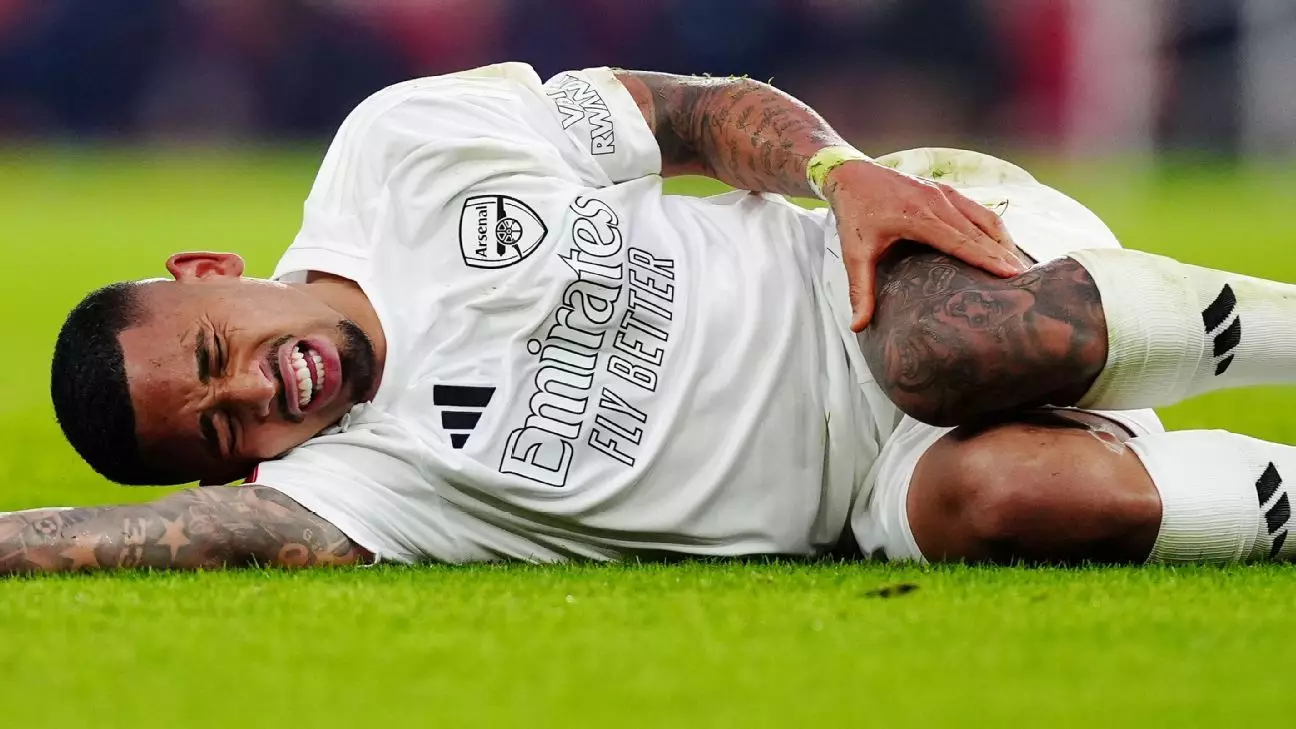Arsenal Football Club is grappling with concerning news as manager Mikel Arteta has raised alarms about the state of striker Gabriel Jesus following a potential ACL injury. This development follows a challenging outing against Manchester United, where not only did Arsenal face elimination in a penalty shootout, but they also lost Jesus in the 40th minute due to what seemed like a harmless collision with United’s captain, Bruno Fernandes. Now, the club faces the grim reality that the forward may not return this season, which casts a shadow over Arsenal’s aspirations.
The skepticism surrounding Jesus’ condition was echoed in Arteta’s statements during a press conference when he conceded that the situation “does not look good.” The manager’s cautious approach to discussing the injury reflects the club’s attempt to manage expectations while acknowledging the seriousness of the issue. The uncertainty is further compounded by the need for an additional specialist’s evaluation. “We were very worried after the game and we are very worried today,” Arteta candidly admitted, demonstrating the emotional toll on both the team and its supporters.
The Strain on Arsenal’s Squad Depth
This setback amplifies concerns about Arsenal’s existing injury crisis. Alongside Jesus, prominent players such as Bukayo Saka, Takehiro Tomiyasu, and Ben White are also sidelined with long-term injuries. The accumulation of injuries is alarming, raising the question of how well the current squad can sustain high-performance levels in the Premier League without its key contributors. Arteta has acknowledged this pressing issue but remains optimistic about reinforcing the squad.
He emphasized that the club has always been proactive in the transfer market, stating, “We are looking and we are trying.” Arteta’s commitment to improving the squad’s capabilities, even amidst these injuries, showcases a dual focus: supporting current players while seeking external talent to strengthen the team. However, the complexities of transfers mean that finding a suitable replacement for Jesus is not merely about identifying potential candidates; it involves negotiations with multiple parties, including the player, their current club, and possibly even agents, making swift action a potential challenge.
Emerging Challenges Amidst an Injury Plague
The potential loss of Gabriel Jesus, particularly with a history of previous knee injuries, could profoundly impact Arsenal’s tactical options. The club’s reliance on key attacking figures has never been more evident, and the absence of Jesus could disrupt their attacking cohesion. With pivotal matches ahead, including fierce rivalries, the Gunners must navigate these pressures while grappling with the emotional and physical toll of their current injury list.
In addition, youngsters Ethan Nwaneri and Riccardo Calafiori also represent concerns for Arteta, as their absence further dilutes the squad depth. While brief comments on Calafiori painted a slightly more optimistic picture—indicating that his injury is less severe—the overall landscape remains complex for Arsenal. The next 24 hours, as Arteta specified, are pivotal in determining both the prognosis for players and the necessary strategic shifts the club may need to undertake.
Arsenal’s current predicament illustrates the challenges faced by a club aiming for success amidst unforeseen injuries. Arteta’s dual approach of nurturing current talent while seeking reinforcements in the transfer market will be crucial as the Gunners strive to maintain their competitive edge this season.

Leave a Reply